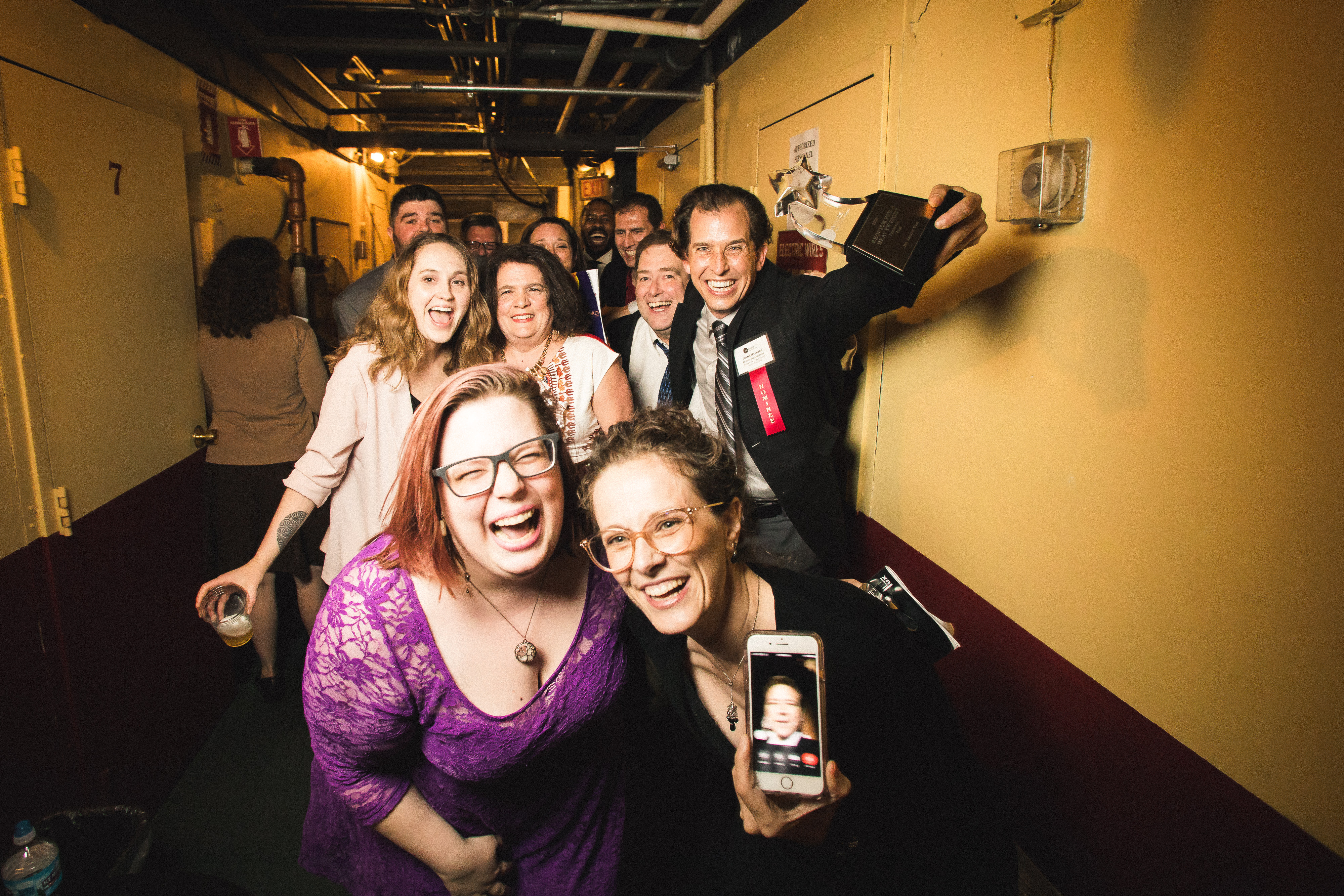The big winners at last night's Non-Equity Jeff Awards — taking home four statues apiece — were theater stalwarts Theo Ubique Cabaret Theatre, the Artistic Home, and Raven Theatre. Each company has been producing in Chicago for more than two decades, which raises the question: Should theaters that have reached a certain institutional age still be avoiding the actors' union?
Steep Theatre Company, located in a comfortable Edgewater storefront next to the Berwyn Red Line station, announced in February that it would be making the leap to Actors Equity contracts this fall. The theater’s lobby windows and walls are lined with mentions of its many appearances on critics’ top-ten lists and its nearly 50 Jeff nominations. Steep has made it through 18 seasons as a non-Equity company — even as some of its core ensemble members have joined the union after working at larger theaters (rendering them unable to perform on their home stage). Yet only a $150,000 “Stepping Stone” grant from Rick Bayless’s family foundation is enabling Steep to make this move, according to the company.
For a city with a historically pro-union bent, Chicago has counterintuitively nurtured a right-to-work attitude when it comes to theater. The Jeff Awards were established in 1968, right at the start of the city’s move toward establishing its own “off-Loop” resident theaters. Just five years later, in 1973, the Jeffs started recognizing non-Equity theater with special citations. By the next decade, the correlation between professionalism and union status was eroding, surely encouraged by critics and reporters at publications like the Tribune, the Reader, and the Sun-Times, who took theater productions in storefronts and basements as seriously as the big institutions.
After Steppenwolf’s explosion onto the national scene in the early 1980s, critics’ eagerness to anoint the next big thing — and audiences’ willingness to follow along — arguably chipped away at the incentives to go union. (Actors Equity only covers actors and stage managers; it doesn’t apply to directors or designers or playwrights, all of whom frequently work on both sides.) Yet there was still an expectation in some quarters that non-Equity companies would eventually make the transition. In a 1985 Tribune article on the nascent non-Equity scene, Actors Equity Midwest regional director Suzanne Brown told reporter Sid Smith, “we look on this movement as a healthy sign.” But, she added: “Of course, we look forward to when they will be Equity and to when we have enough theater to support all the actors here who want to work.”
Three and a half decades later, that moment has yet to arrive. The city’s two-tiered theater ecosystem has perversely become a selling point for an annual influx of new young actors, who see that it’s possible to get work and press without being a union member — which can be an attractive prospect to eager artists, even if it means they’re getting paid little to nothing.
A strong stock of willing, able, and cheap performers can make for thrilling, experimental, and audacious work. Some of my favorite memories as an audience member are immersive, large-cast shows like Dog & Pony’s As Told by the Vivian Girls, Pavement Group’s Lipstick Traces, and Mary-Arrchie Theatre Co.’s Cherrywood, which cast 49 actors, nearly outnumbering the audience — an artistic and economic feat that would never fly at Equity minimums.
Even union houses don’t exclusively hire union actors. Under the vagaries of Chicago-area Equity contracts, which offer a lot of leeway, many Equity shows employed at least a couple of nonunion actors; some had just one Equity-contracted person in the production, with the rest of the cast made up of non-Equity performers. (That a chunk of the city’s limited pool of Equity contracts is seemingly reserved for actors hired from out of town isn’t a great motivation for nonunion actors to change their status, either.)
Still, more companies should follow Steep’s lead. And the Bayless Family Foundation’s gift demonstrates how small a cash infusion companies like Steep might need. By making midsized gifts to midsized companies, earmarked for operational costs rather than reception-room naming rights, we could see more Chicago actors being able to earn a living wage — without having to keep a day job.




